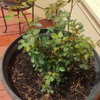Virus free v. Virus indexed
gardenerzone4
13 years ago
Related Stories

EARTH DAYGrow a Beautiful Garden With Ecofriendly Greywater
Reducing home water waste means lower bills and a healthier planet. Here's how to set up a greywater home irrigation system that can help
Full Story
LIFEHow to Outsmart Backyard Critters
Learn to think like a raccoon, skunk or squirrel to keep your home safe and your garden intact
Full Story
EDIBLE GARDENSSummer Crops: How to Grow Tomatoes
Plant tomato seedlings in spring for one of the best tastes of summer, fresh from your backyard
Full Story
MOST POPULAR33 Magic Household Cleaning Tips
Houzzers from around the world share their tips for transforming housework into child’s play
Full Story
ACCESSORIES40 Design-Friendly Gifts for Modern Kids
Houzz Gift Guide 2010: Gifts to Inspire Feel-Good Fun, Creativity, and Even Clutter Control
Full Story
LIFETurn Off the Video Games and Turn On Your Kid's Creativity
Going nuts planning summer activities? Kids overdosing on screen time? It may be time to foster more self-directed play
Full Story
KITCHEN DESIGN16 Practical Ideas to Borrow From Professional Kitchens
Restaurant kitchens are designed to function efficiently and safely. Why not adopt some of their tricks in your own home?
Full Story
DIY PROJECTS12 Signs You've Caught the DIY Bug
Been making inventive things from scratch? Repurposing salvaged pieces creatively? It may be more serious than you think
Full Story
THE HARDWORKING HOMECES 2015: Inching Toward a Smarter Home
Companies are betting big on connected devices in 2015. Here’s a look at what’s to come
Full Story
SMALL HOMESHouzz Tour: Sustainable, Comfy Living in 196 Square Feet
Solar panels, ship-inspired features and minimal possessions make this tiny Washington home kind to the earth and cozy for the owners
Full StoryMore Discussions








michaelg
jim1961 / Central Pennsylvania / Zone 6
Related Professionals
Horsham Landscape Architects & Landscape Designers · Ilchester Landscape Architects & Landscape Designers · Parole Landscape Architects & Landscape Designers · Brunswick Landscape Contractors · Hilton Head Island Landscape Contractors · Mashpee Landscape Contractors · Mason Landscape Contractors · Mercedes Landscape Contractors · New Baltimore Landscape Contractors · Parker Landscape Contractors · Suitland Landscape Contractors · Thonotosassa Landscape Contractors · Wareham Landscape Contractors · Forest Hill Landscape Contractors · Sun Valley Landscape Contractorskentstar
athenainwi
jaxondel
gardenerzone4Original Author
michaelg
wirosarian_z4b_WI
henry_kuska
wirosarian_z4b_WI
anntn6b
henry_kuska
berndoodle
kentstar
henry_kuska
michaelg
michaelg